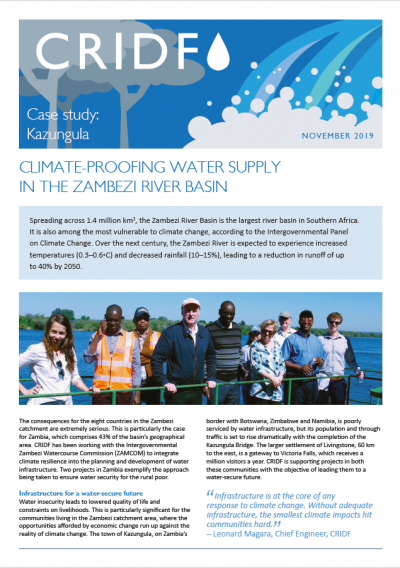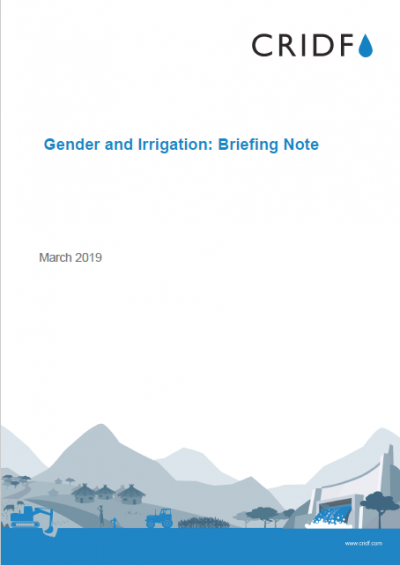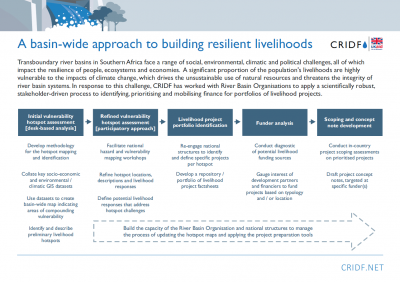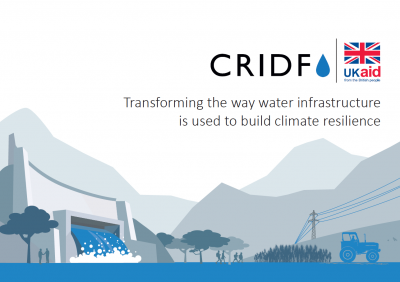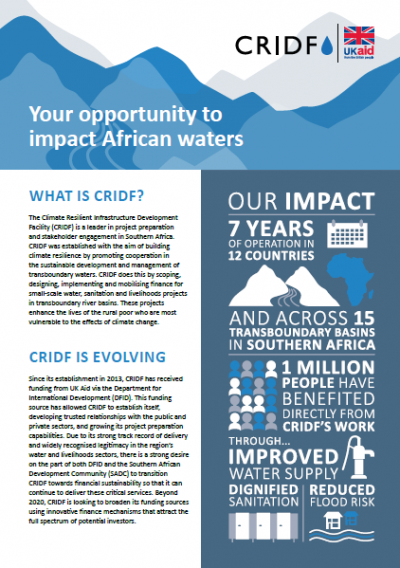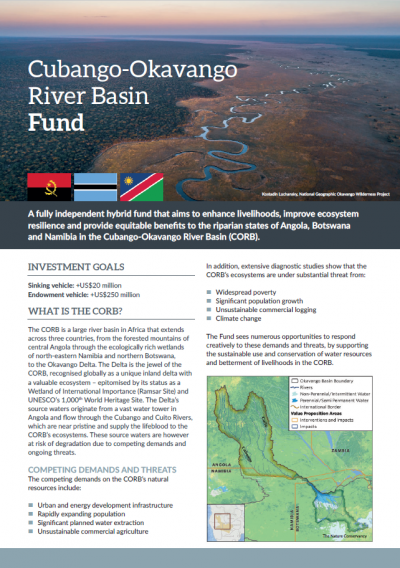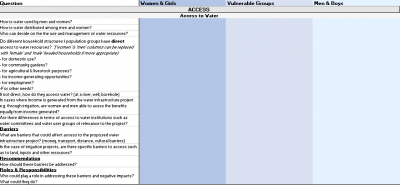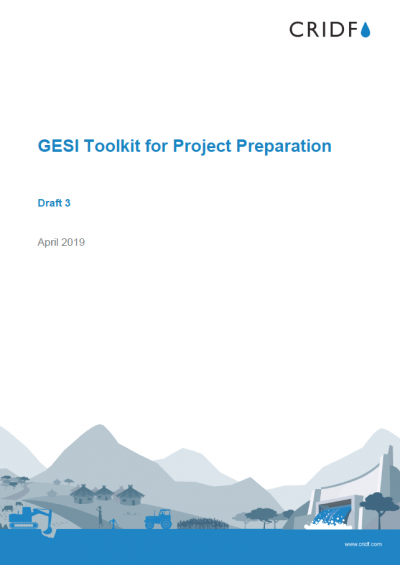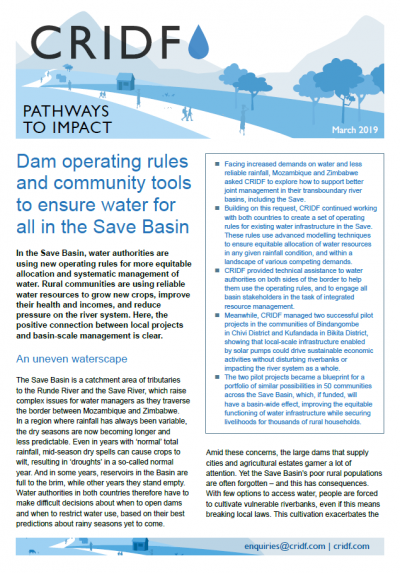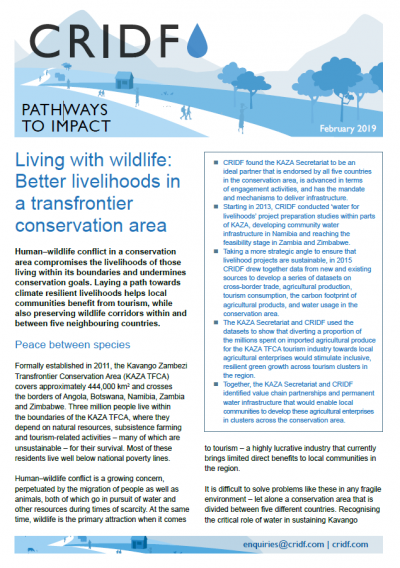The Zambezi River Basin is projected to experience increasing temperatures and decreasing rainfall levels over the next century. This case study focuses on CRIDF efforts alongside the Intergovernmental Zambezi Watercourse Commission (ZAMCOM) to integrate climate resilience into the planning and development of water infrastructure. It draws upon…
Year: 2019
File size: 866 KB
Women play a central role in agriculture and food production in sub-Saharan Africa and make up approximately half of the region’s farmers. But people working on the development and implementation of agricultural projects tend to undervalue their role and their contributions to food security and income generation. This briefing note targets irrigation…
Year: 2019
File size: 355KB
Transboundary river basins in Southern Africa face a range of social, environmental, climatic and political challenges, all of which impact the resilience of people, ecosystems and economies. A significant proportion of the population’s livelihoods are highly vulnerable to the impacts of climate change, which drives the unsustainable use of…
Year: 2019
File size: 1.6 MB
CRIDF’s aim is to transform the way in which water infrastructure builds climate resilience for poor communities in Southern Africa. The programme does this in a number of ways, but the first step is always in response to a request for assistance from our partners. One of our approaches is to develop, plan and build ‘proof of concept’ ideas. These are designed…
Year: 2019
File size: 9 MB
Since its establishment in 2013, CRIDF has received funding from UK Aid via the Department for International Development (DFID). This funding source has allowed CRIDF to establish itself, developing trusted relationships with the public and private sectors, and growing its project preparation capabilities. Beyond 2020, CRIDF is looking to broaden its…
Year: 2019
File size: 383 KB
A fully independent hybrid fund that aims to enhance livelihoods, improve ecosystem resilience and provide equitable benefits to the riparian states of Angola, Botswana and Namibia in the Cubango-Okavango River Basin (CORB).…
Year: 2019
File size: 1.4 MB
CRIDF has developed a toolkit to guide its efforts to integrate gender into all stages of the project cycle, with an emphasis on the planning phase. It is informed by practical experiences in preparing water projects in the SADC region. The objective of the toolkit is to provide a simple resource and basic tools for people working on water infrastructure projects…
Year: 2019
File size: 21 KB
The Gender Equality Social Inclusion (GESI) Toolkit is a practical resource designed to help water infrastructure projects integrate gender equality considerations into every stage of a project, with an emphasis on the planning phase. Gender equality and social inclusion (GESI) are a central concern in water services, water resources management and…
Year: 2019
File size: 986 KB
The Pathways to Impact series highlights CRIDF’s long-term initiatives that have been proven to have a tangible impact on people’s lives. The Save Basin is a catchment area of tributaries to the Runde River and the Save River, which raise complex issues for water managers as they traverse the border between Mozambique and Zimbabwe. Water authorities in both…
Year: 2019
File size: 535 KB
The Pathways to Impact series highlights CRIDF’s long-term initiatives that have been proven to have a tangible impact on people’s lives. Three million people live within the boundaries of the Kavango Zambezi Transfrontier Conservation Area (KAZA TFCA) where they depend on natural resources, subsistence farming and tourism-related activities. In this…
Year: 2019
File size: 1.1 MB


